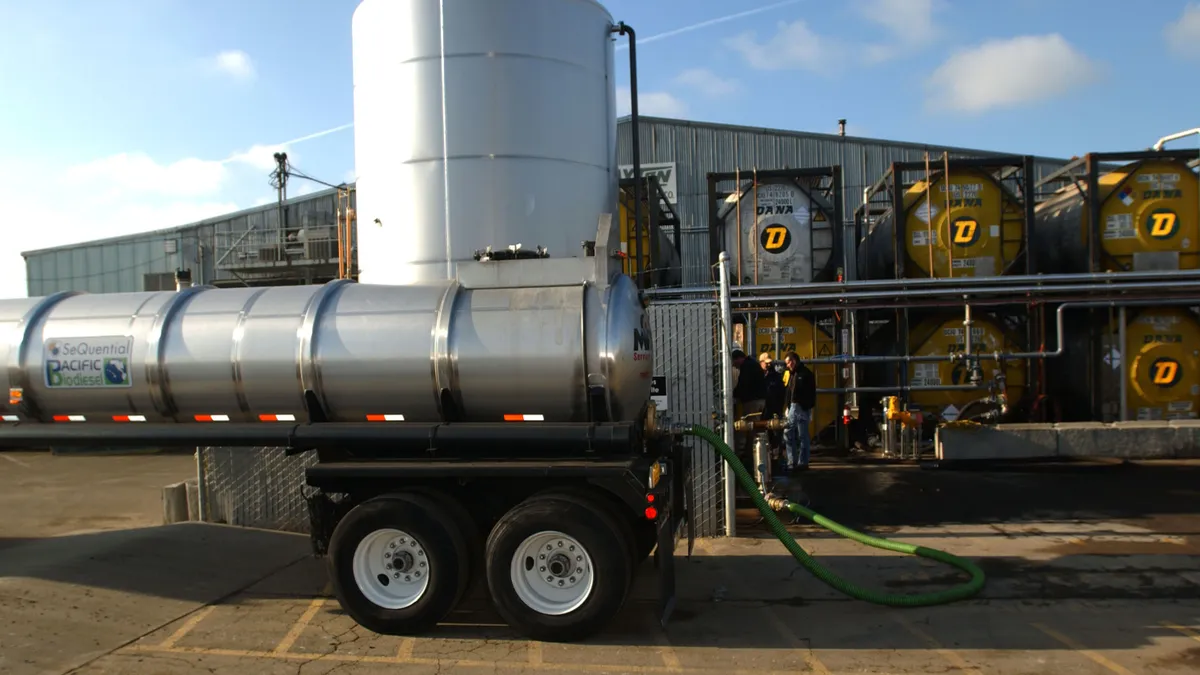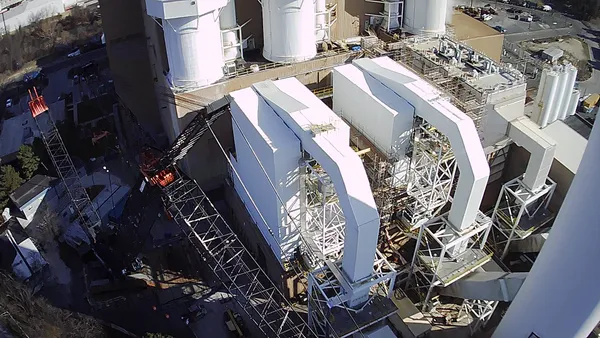Dive Brief:
- A bipartisan group of federal legislators has reintroduced the Farmer First Fuel Incentives Act, which would extend the Clean Fuel Production Credit through 2034. The current credit, also known as 45Z, is set to expire at the end of 2027.
- Lawmakers previously introduced the bill in September during the last Congress. It would require fuels to be made from feedstocks produced or grown in the U.S. The tax credit it extends incentivizes the production of biofuels, including those derived from landfill gas or organic waste.
- The bill's reintroduction comes as Congress and the Republican Party remain divided over tax credits that are considered a key part of former President Joe Biden's climate agenda. Combined with other bills supporting biofuels, it adds a wrinkle to the current debate over a major tax package that Congress is expected to pass this year.
Dive Insight:
The 45Z credit is one of 13 created by the Inflation Reduction Act to support clean energy. Some replaced credits that supported individual technologies. The new approach is considered by the biofuels industry to be more technology neutral.
Other beneficial credits for the waste industry include the Investment Tax Credit for Energy Property and the Production Tax Credit for Electricity from Renewables, which explicitly supports electricity from landfills and "trash."
While those credits were outlined in the Inflation Reduction Act, passed in 2022, it took the Internal Revenue Service several years to finalize guidance language. That left renewable natural gas systems developers guessing as to whether their projects would qualify and rushing to construction once language was announced at the end of 2024.
President Donald Trump’s administration has taken a slash-and-burn approach to regulations addressing climate change. Its tactics have landed the U.S. EPA and other agencies in court, where federal judges have attempted to pause efforts to roll back climate funding.
Even so, the outlook for the biofuels industry under the new administration remains murky. In Trump’s day-one “Unleashing American Energy” executive order, he expressed support for biofuels alongside oil and gas.
Initial supporters of the Farmer First Fuel Incentives Act include senators and representatives from several agriculture-heavy states. Lawmakers highlighted the added certainty extending the credit's sunset would provide.
"The introduction of the Farmer First Fuel Incentives Act is an important step as we work to maximize the potential of the 45Z Clean Fuel Production Credit and clean fuel investments across rural America," Sen. Amy Klobuchar, D-Minn., said in a statement. "By extending the credit for another ten years, this legislation gives farmers and biofuel producers the certainty they need to provide consumers with affordable, lower-carbon fuel options.”
Sen. Roger Marshall, R-Kansas, another sponsor of the bill, highlighted its ability to expand domestic markets for agriculture producers.
"With President Trump in the White House and Republicans leading both the Senate and House, we are finally putting American farmers first and supporting biofuels made in the U.S.A.," he said in a statement. "It’s time our energy and agricultural policies reflect that.”
In this Congress, it's cosponsored by Sens. Joni Ernst, R-Iowa; Deb Fischer, R-Neb.; Elissa Slotkin, D-Mich.; Tammy Baldwin, D-Wisc.; and Pete Ricketts, R-Neb.
The bill's reintroduction comes on the heels of another renewed legislative effort to boost biofuels. The Renewable Natural Gas Incentive Act would add a $1-per-gallon tax credit for RNG sold as a transportation fuel.
Legislators first proposed it during the last Congress, and it was reintroduced by another bipartisan coalition in April. The bill’s sponsors include Sen. Mark Warner, D-Va., and Sen. Thom Tillis, R-N.C.















